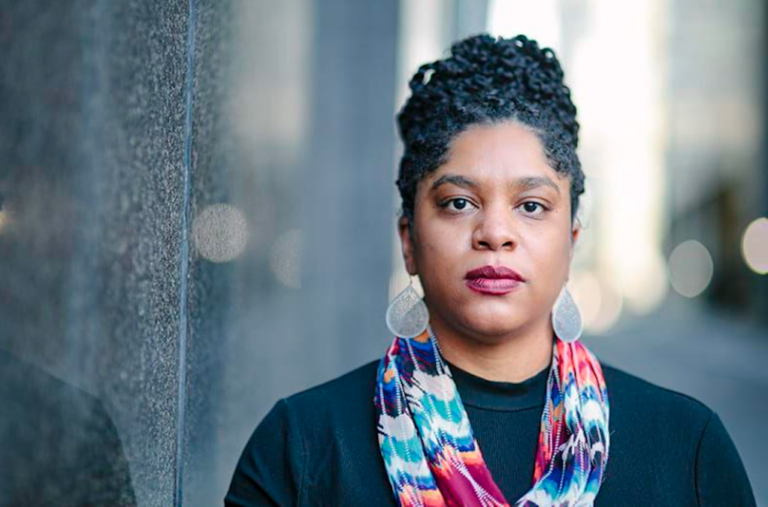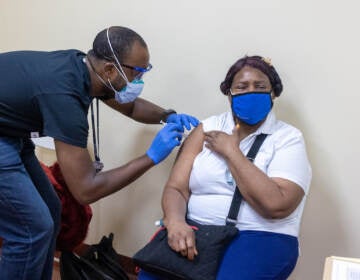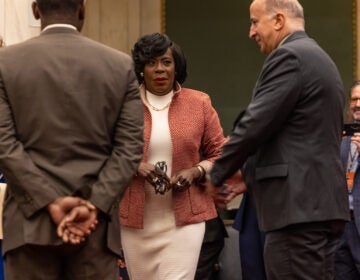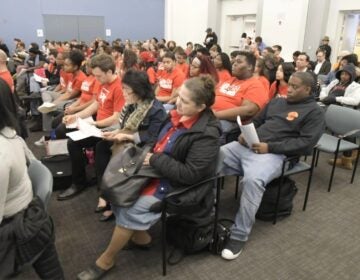Drexel’s Ubuntu Center launches teach-in series on health equity
The Ubuntu Center aims to bridge connections between scholars, residents, and advocates about entrenched inequities created by racism and other systems of oppression.

Dr. Sharrelle Barber, director of The Ubuntu Center. (Courtesy of Drexel University)
This story originally appeared in The Philadelphia Tribune.
The Ubuntu Center on Racism, Global Movements and Population Health Equity is rolling out a virtual teach-in series addressing the impact of structural racism.
The new series, which runs monthly March through June, to bridge connections between scholars, community residents, organizers, and activists about entrenched inequities created by racism and other systems of oppression.
“This new teach-in series ‘Pain. Power. Possibilities’ really is designed to help us think very deeply and critically about how structural racism shows up with regard to disinvestment and dispossession in our communities, to mass incarceration and the carceral state and also with regard to environmental racism and make those links to health and thinking about what research has been done and needs to be done and what actions grow out of the work that activists and organizers have been doing on the ground around these issues,” Dr. Sharrelle Barber, assistant professor of epidemiology and director of The Ubuntu Center.
“What we recognize is that what we see in terms of racism is a lot of people only think about health care when it comes to health.”
“But what we are saying is that there are these interlocking and fundamental kind of root causes of health that we need to be thinking about,” she continued.
“It’s not just the health of individuals. It’s the health of whole communities so if we can really dig deep into those fundamental structural drivers of health I think it will allow is to think differently about what then we need to do to act.”
The first teach-in sessions will be Thursday, March 24 at 5:30 p.m. and Saturday, March 26 at 10 a.m. and focuses on disinvestment, segregation and dispossession. The sessions feature Tommy Joshua Caison, executive director, Philadelphia Peace Park; Nina Johnson, assistant professor, Swarthmore College and Rachel Mayes, executive director, Southern Echo.
After the series, the Ubuntu Center will host a session in June where cohort members will summarize ideas and insight gained during the three previous meetings and plan for a collective path forward.
“The other component of this is that we really are committed to creating co-learning spaces where it’s not just academics that have expertise,” Barber said, noting the role of community members, activists and organizers. “There is a wealth of expertise about these issues and so we want to come together and one shared space to share what we know. That’s why we are really centering communities.”
The Ubuntu Center was made possible through a generous gift from philanthropists Dana and David Dornsife to the Drexel University Dornsife School of Public Health.
“Our center is a research and action center at the Dornsife School of Public Health that is designed to unite diverse partners, to produce rigorous evidence, accelerate anti-racism solutions and really think about how we help inform the work that needs to go into ensuring that communities locally, nationally and globally thrive,” Barber explained.
“The center is really born out of the country — the fact that we just now reaching two years of the global pandemic that has disproportionately impacted particularly Black communities, Latinx communities, indigenous communities and poor communities in the U.S.”
“And also we saw in this pandemic the murders of Breonna Taylor and George Floyd and really those intersecting issues came together to amplify what many of us in the field of public health have known for many, many years — that racism is a public health crisis,” she continued.
To register for the teach-in series visit www.ubuntucenter.org/our-work.
WHYY is your source for fact-based, in-depth journalism and information. As a nonprofit organization, we rely on financial support from readers like you. Please give today.







